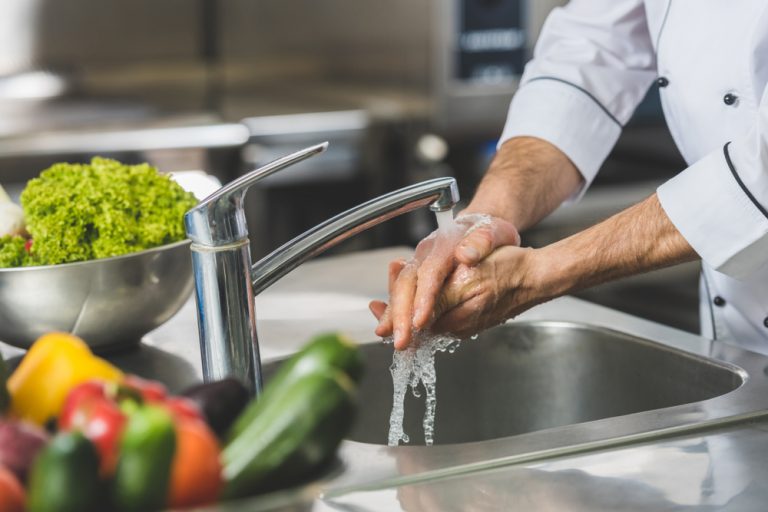There are a lot of food safety myths and misinformation that get passed along as gospel.
Some are passed along generationally, neat tricks that seniors use and are passed along as “elderly wisdom.” Other myths are propagated in the workplace as “hacks” that only “pros” are aware of.
(It’s hard to call BS on a head chef who’s been in the business for decades, after all.)
But watch out! These “tips” are actually putting your customers—and your restaurant—at risk.
Defrosting Meat on the Counter
Lots of cooks do this—both professional and amateur. But it’s one of the worst things you can do safety-wise.
Meat defrosts unevenly when left to thaw. The inner portions of the meat will still be frozen long after the outside of the meat has reached room temperature, which increases the risk of bacterial growth.
The best option is to thaw the meat in the refrigerator or the microwave, where the temperature change is more controlled.
Cooking by Color
“Golden brown” and “toasty” and “bright pink” are adjectives that describe how the food looks, not whether it’s safe to eat.
Never rely on color to judge whether food has been properly cooked. It’s misleading as some parts of the food may still be raw and will cause food illness if consumed.
Always use a food thermometer to check a food’s internal temperature. There are many types of food thermometers available for nearly any type of cooking, so make sure your restaurant has one for every occasion.
Always Wash Raw Chicken
Washing your chicken will actually get your patrons sicker than simply popping it into the oven. As you wash the chicken, the water will spray the bacteria to anything in the surrounding area: the sink, the countertop, you, your hands, and other nearby foods, increasing the chance customers will get sick.
Proper cooking temperature is a much more reliable method of sterilizing the food and doesn’t carry the risk of splashing the bacteria all over the room.
Cooking Kills All Bacteria
Cooking kills most bacteria; enough that the food is safe to eat.
As food cools down and hits the food temperature danger zone, the bacteria will start growing again at a faster and faster rate until the food becomes extremely unsafe to eat.
Don’t let food sit below 135°F/57°C. Serve or store it as soon as possible to prevent bacteria growth from starting again.
Rinsing is as Good as Washing
Restaurant kitchens are a busy place. Orders come in fast, and there’s no time to dilly-dally. So why waste valuable time washing your hands when a quick splash and rinse will do, right?
Wrong!
A quick rinse won’t completely remove the bacteria sticking to your hands—especially if you’ve been handling raw meat. If you’re going to wash, wash your hands completely and with soap. No buts.
Wearing gloves is even worse of a danger. Gloves give a false sense of security. Yes, you don’t touch foods with your bare hands, but you also risk cross-contamination if you don’t change your gloves regularly.
